Wintersowing: My best tips
I wintersow a selection of mixed seeds in winter to get a nice harvest of fresh vegetables in early spring. Wintersowing is really easy, try it!
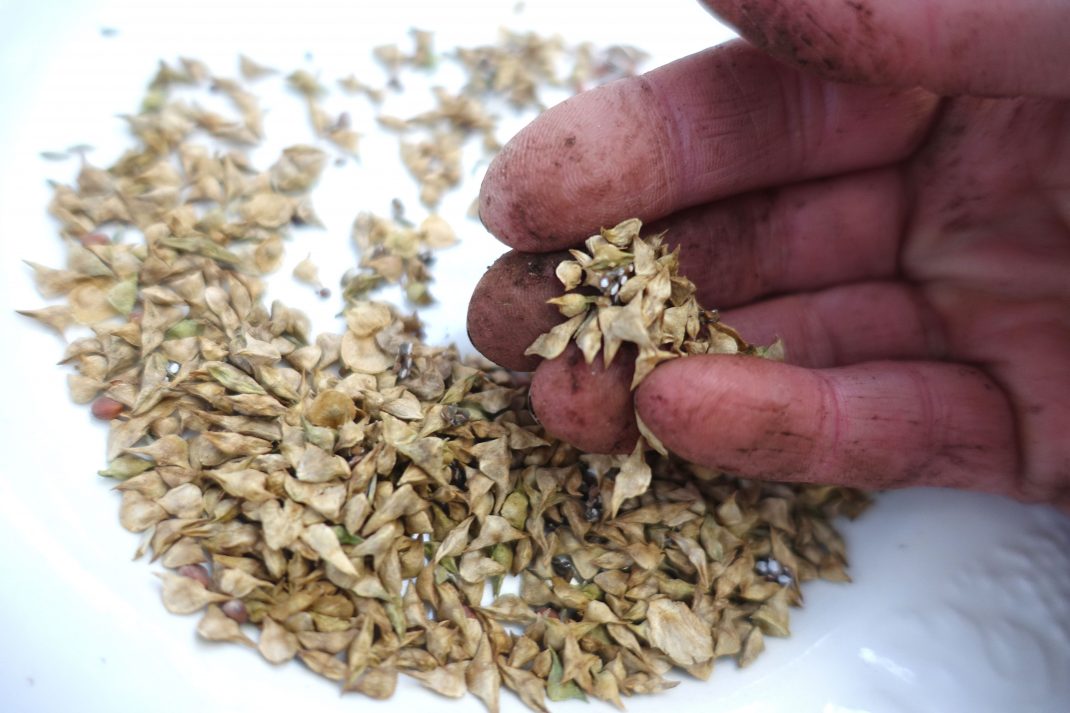
There are plenty of spinach seeds in the mix, but also some arugula and pak choi.
I spent some time at my friend Ninnie's house this week, writing the whole day. A nice calm day in a large, warm sofa. No playful kids, dogs that need walking or laundry to distract me. Just me and my writing.
I brought some seeds for Ninnie and decided I wanted to surprise her with a winter sowing! As you might know by now, I'm a big fan of growing vegetables in winter. Try it, it really works!
Learn more about wintersowing: Growing vegetables in winter, a beginner's guide
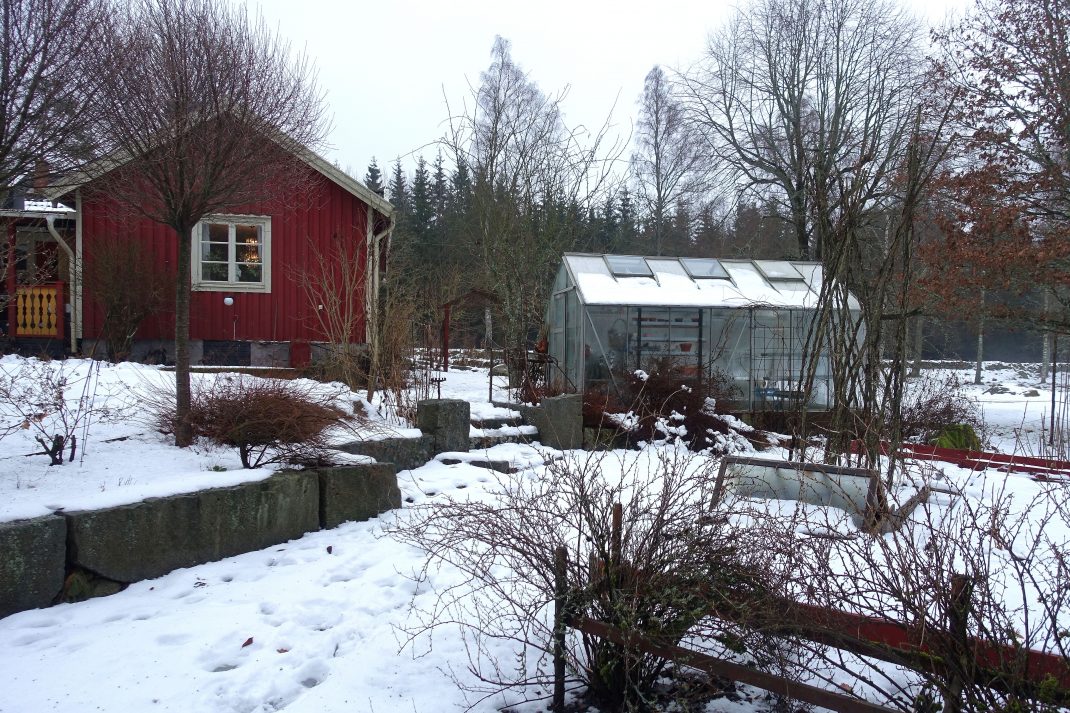
The greenhouse in Ninnies garden faces south. She grows tomatoes and strawberries here during the summer.
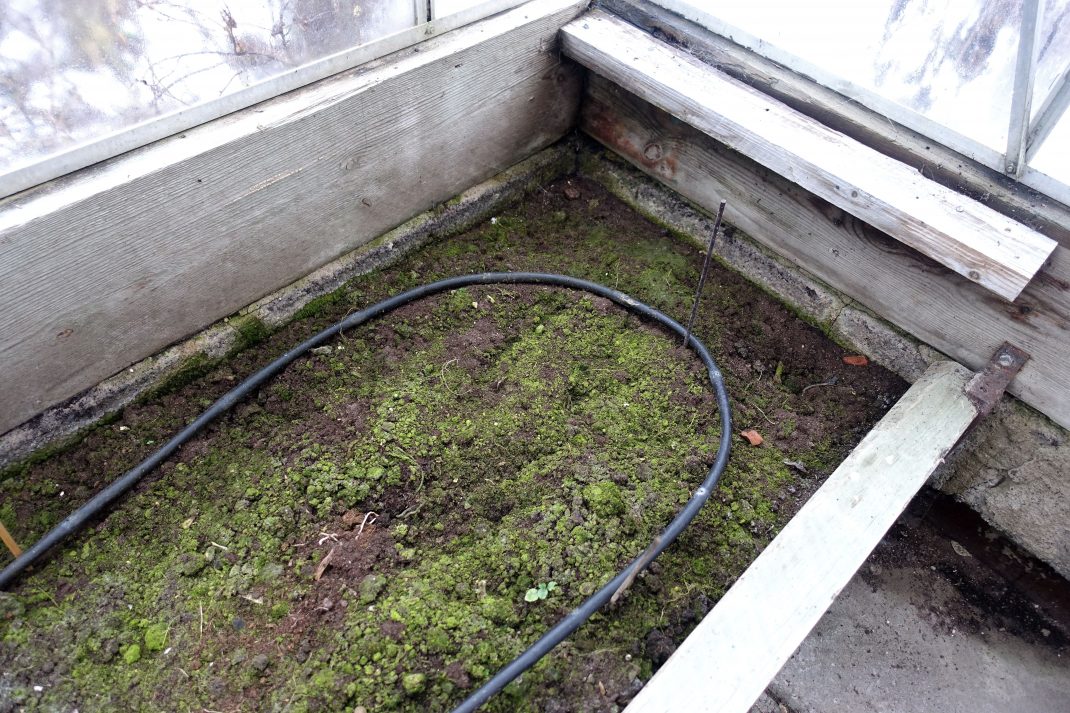
The greenhouse is usually empty in winter. Time to fix that!
This bed in Ninnie's greenhouse faces south. It's cold in here, but the upper layer of soil is at least not frozen so I can work with it. I'm going to sow around 3.4 feet of vegetables here. Yes, even now in winter!
I brought a lot of half-empty seed packets with me. To be honest, I don't know about the seed viability for some of them. But I'm an optimist! This is what I'm sowing today:
Lettuce
Arugula
Spinach
Pak choi
Garden orache
Radish leaves
Snow peas
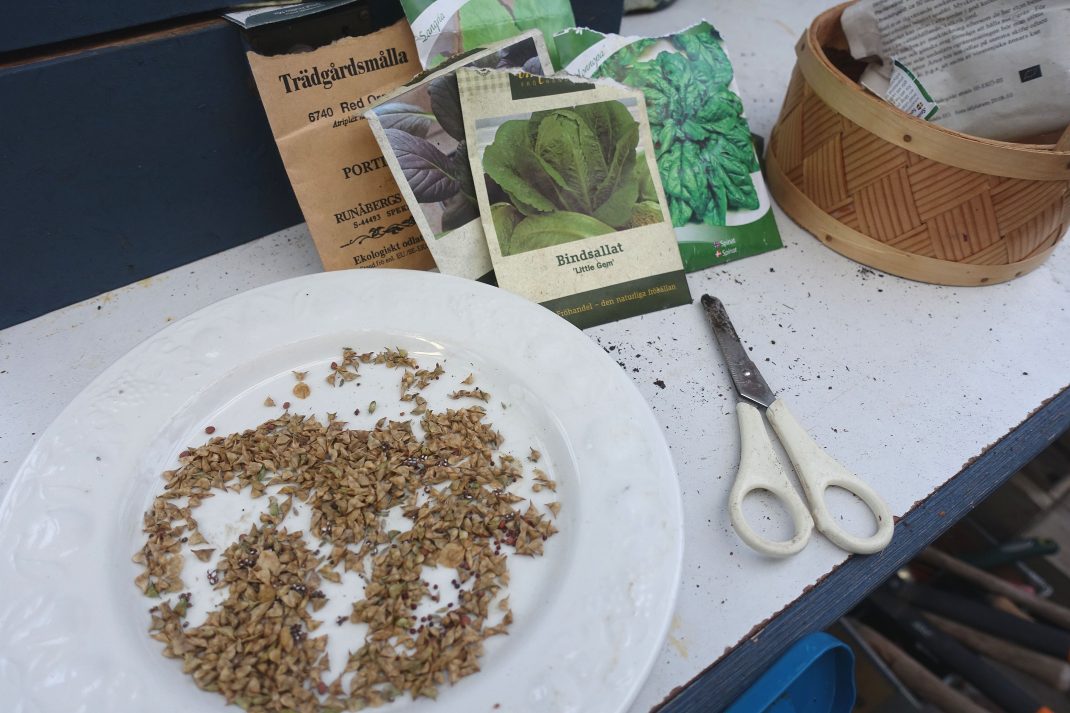
I mix the seeds by emptying them on a plate.
I put the seeds on a plate and mix them. Then, I rake the soil where I'm planning on planting them. When you plant the seeds, simply scatter them on the surface and scratch some of the loose soil over them. That's it! Simple, right? Since I sow many different seeds close together, you can't really tell if the seed viability were to be low for some of these varieties.
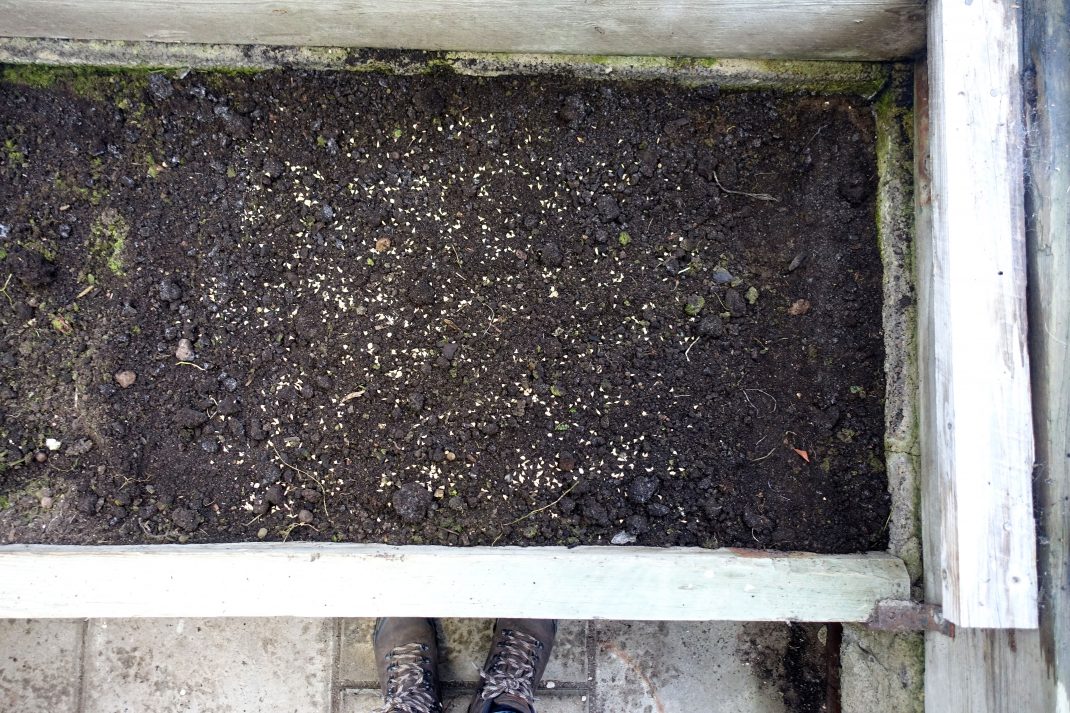
I scattered the seeds close together on top of the soil.
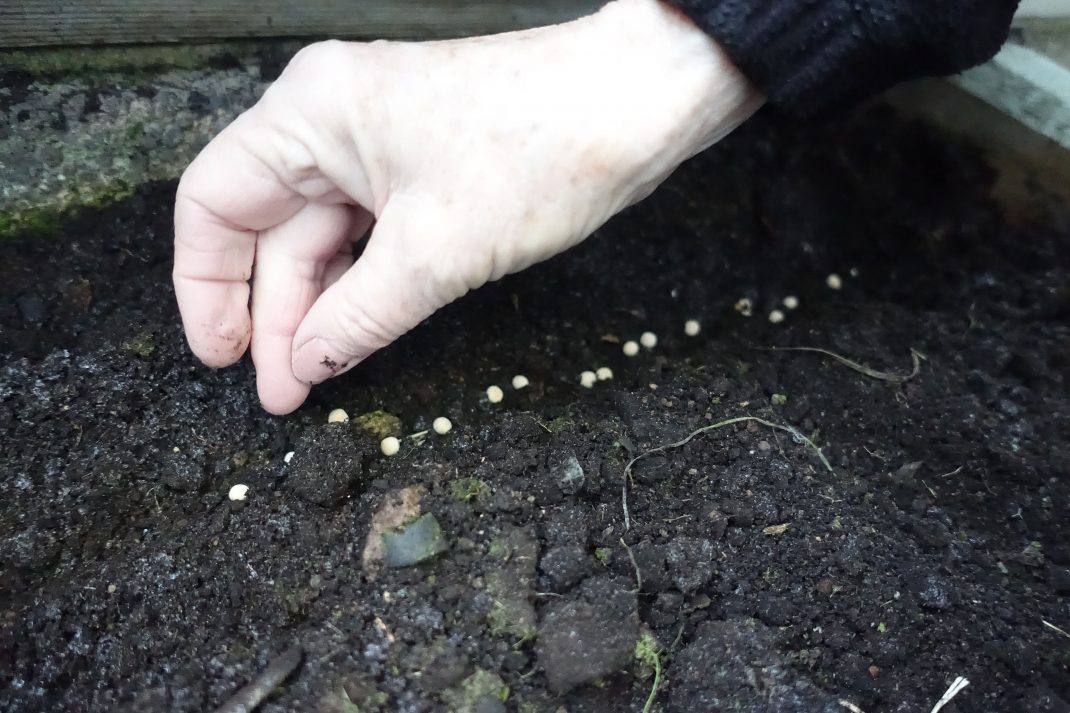
I plant the peas very close together, since I believe that some of them won't grow in the cold.
I'm making a row right by the short end of the bed, next to the window. I will put the snow pea variety Norli here, the seeds planted around 0.4 inches (1 centimeters) apart. This is my second year wintersowing snow peas in a polytunnel. My results have been good enough for me to want to recommend it to you! I will write a separate post about wintersowing snow peas in the future too.
Instructions:
- Rake the soil.
- Scatter the mixed seeds (you can use just one variety too of course.)
- Put a little bit of soil on top of the seeds.
- Flatten the soil.
- Add some snow on top. The seeds get watered when the soil melts.
- Cover with garden fabric, either one or two layers.
- Sow the snow pea seeds close together and cover with soil.
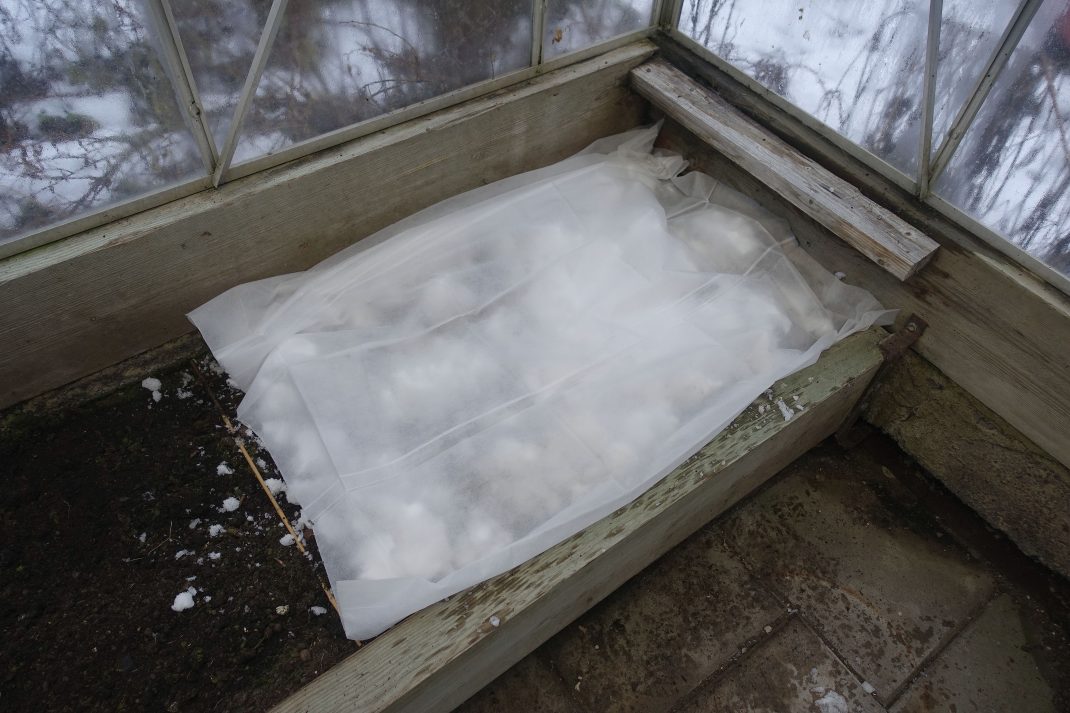
My wintersowing is done! The snow needs to melt and then all I can do is wait for the sun to return in February. The seeds will start to grow in March.
This particular greenhouse has a wooden foundation which prevents the sunlight from reaching in to the bed. So it might take some extra time for these seeds to grow. I'm guessing that something will start happening in March.
All I can do now is wait. I'm usually able to harvest this type of sowing in the beginning of April. It will keep producing new harvests throughout April and May, and maybe even longer. Watch the video below to get an idea of what you can expect:
This sowing only took me a few minutes and it's just the perfect project for any forgotten surface that you don't plan on using for a while. You can do something similar if you want to grow your vegetables on your porch or balcony. Simply fill a few large pots with soil and follow the instructions above. Wouldn't it be wonderful to enjoy a fresh batch of homegrown leaves so early in the season?
Feel free to explore my blog! I have written quite a lot about wintersowing, becoming self-sufficient and much more. Good luck!
/Sara Bäckmo
04. January 2019


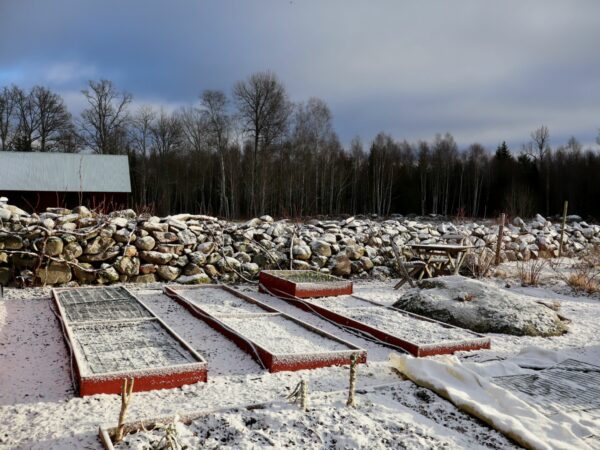
Leave a Reply
You must be logged in to post a comment.